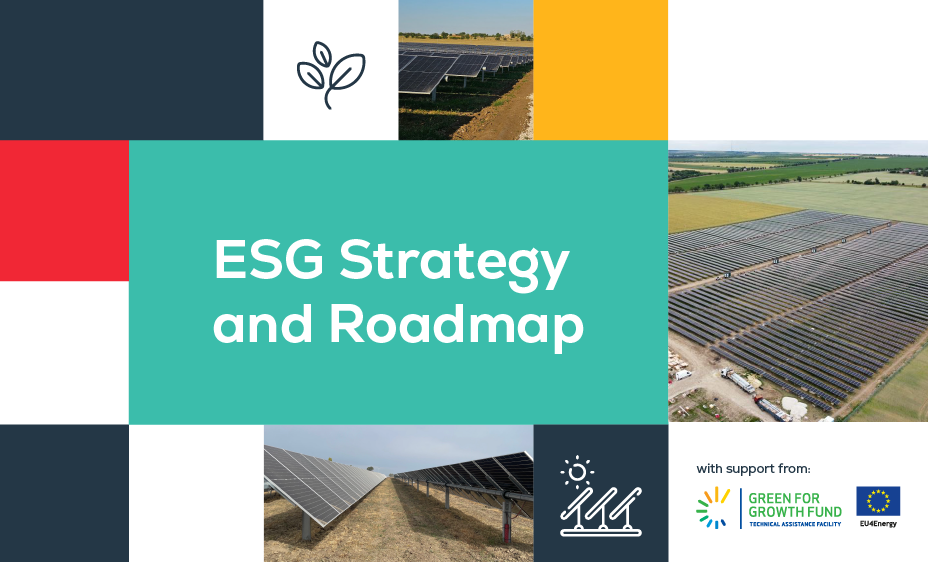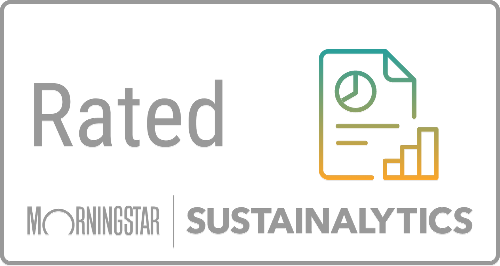Sustainability – Investor Relations
Sustainability
In 2023, maib adopted a comprehensive sustainability strategy anchored in six pillars:
Climate Risk Initiative & Governance:
This pillar is aimed at identifying, assessing, and mitigating climate-related risks. Initiatives here include the implementation of a Climate Risk Management Framework and the use of a climate heatmap to steer lending decisions.
Transparency:
Dedicated to open reporting, this pillar supports initiatives that ensure regular disclosure of sustainability performance, including adherence to GRI standards and obtaining sustainability ratings.
Sustainable Operations:
Focusing on reducing the bank’s own environmental footprint, this area covers energy efficiency measures, waste reduction strategies, and the monitoring of carbon emissions across all operational scopes.
People:
This pillar prioritizes employee well-being and development. Initiatives include comprehensive training programs and targeted skills development to foster a collaborative culture.
Financial Health & Inclusion:
Aimed at broadening access to banking services, initiatives here facilitate improved access for underserved communities and vulnerable groups through tailored financial products.
Green & Sustainable Products:
Focused on expanding the portfolio of sustainable finance, this pillar drives initiatives such as dedicated green loans to support renewable energy projects and help reduce financed carbon emissions.

The strategy includes over 60 tangible ESG initiatives, a Climate Risk Management Framework, an Environmental and Social Management System (ESMS), green lending targets, and the establishment of an internal sustainability committee.
It was approved by the Supervisory Board in 2023, aligning with Moldova’s commitments to EU legislation and national green goals. It was developed with support from the Green for Growth Fund.
Maib aims to future-proof its business, mitigate climate-related risks, and fulfill its role as a systemically important bank in Moldova. The strategy responds to stakeholder expectations and positions maib as a sustainable banking leader.
Crucial to the successful implementation of maib’s ESG Strategy is an efficient and robust ESG governance apparatus. The figure below displays maib’s ESG governance structure and the resulting distribution of ESG-related tasks and responsibilities.
Maib’s ongoing sustainability efforts have been evaluated and a rating has been issued, which is shown below:
ESG Risk Rating Overall Score:
24.3
ESG Risk Rating Category:
Medium Risk

ESG rating description:
Morningstar Sustainalytics’ ESG Risk Ratings measure a company’s exposure to industry-specific material ESG risks and how well a company is managing those risks. This multi-dimensional way of measuring ESG risk combines the concepts of management and exposure to arrive at an assessment of ESG risk, i.e.a total unmanaged ESG risk score or the ESG Risk Rating, that is comparable across all industries. Sustainalytics’ ESG Risk Ratings provide a quantitative measure of unmanaged ESG risk and distinguish between five levels of risk: negligible, low, medium, high and severe. Learn more about the ESG Risk Ratings here.
Company profile:
Morningstar Sustainalytics, is a leading ESG research, ratings and data firm that supports investors around the world with the development and implementation of responsible investment strategies. Sustainalytics works with hundreds of the world’s leading asset managers and pension funds who incorporate ESG and corporate governance information and assessments into their investment processes. The firm also works with hundreds of companies and their financial intermediaries to help them consider sustainability in policies, practices and capital projects. For more information, visit www.sustainalytics.com

Disclaimer:
Copyright © Sustainalytics, a Morningstar company. All rights reserved. This section includes information and data provided by Sustainalytics and/or its content providers. Information provided by Sustainalytics is not directed to or intended for use or distribution to India-based clients or users and its distribution to Indian resident individuals or entities is not permitted. Morningstar/Sustainalytics accepts no responsibility or liability whatsoever for the actions of third parties in this respect. Use of such data is subject to conditions available at https://www.sustainalytics.com/legal-disclaimers/.
Maib’s environmental impact is largely driven by its lending activities. The bank has integrated a robust Environmental and Social Management System (ESMS) and has committed to measuring and reducing emissions from its own operations.
In parallel, maib’s lending portfolio contributes significantly to its overall impact. Financed emissions were estimated at 534 thousand tonnes of CO₂ in 2024, with the bank’s green portfolio helping to avoid over 167 thousand tonnes of CO₂ annually. This reduction plays a key role in supporting Moldova’s energy independence and aligning the bank’s operations with broader national and international sustainability goals.
Maib’s Own Carbon Emissions by Scope (tonnes CO₂/year)
| Scope | 2024 | 2023 | 2022 |
|
Scope 1 |
1,952 | 1,830 | 1,723 |
|
Scope 2 |
3,077 | 1,800 | 2,031 |
|
Scope 3 |
5,063 | 4,528 | 4,048 |
|
Total |
10,093 | 8,158 | 7,802 |
Financed Emissions by Division (2024)
| Division | Amount | Unit |
| Corporate | 200,248 | t Co2e |
| SME | 264,954 | t Co2e |
| Retail (mortgages only) | 68,466 | t Co2e |
| Total | 533,669 | t Co2e |
Employee Development
Maib is committed to investing in its human capital. Training and development are viewed as a way to build a sustainable competitive advantage for maib on the Moldovan banking market. It is also a critical tool in the war for talent, enabling maib to attract and retain quality employees, for many of whom professional development is a top priority. Maib academy is envisioned to achieve these objectives and is a cornerstone of maib’s transformation
Annual training budget (MDL)
| 2024* | 2023 |
| 5.0 mln | 7.6 mln |
Average number of training hours per employee
| 2024* | 2023 |
| 27.8 hrs | 23.1 hrs |
*Training hours have increased in spite of a lower training budget. This has been made possible by the utilization of new training methods (e.g. joint workshops) and partner sponsored courses which we do not pay for and are thus not included in the budget.
Maib’s green loan portfolio reached a value of MDL 947 million by the end of 2024. The portfolio is primarily focused on financing renewable energy projects, including solar and wind energy initiatives. One highlighted product is the “Energy for Trade” loan, designed to support SMEs in installing renewable energy systems. These initiatives not only contribute to Moldova’s sustainable energy goals but also help avoid emissions.
Maib's Green Portfolio Breakdown (MDL mln):
| 2024 | 2023 | 2022 | |
| SME | 440 | 351 | 217 |
| Corporate | 508 | 229 | 118 |
| Grand total | 947 | 580 | 334 |
The bank continues to expand its sustainable finance efforts by developing an internal green fund and a comprehensive green taxonomy, ensuring that future green investments are tracked and managed effectively.


